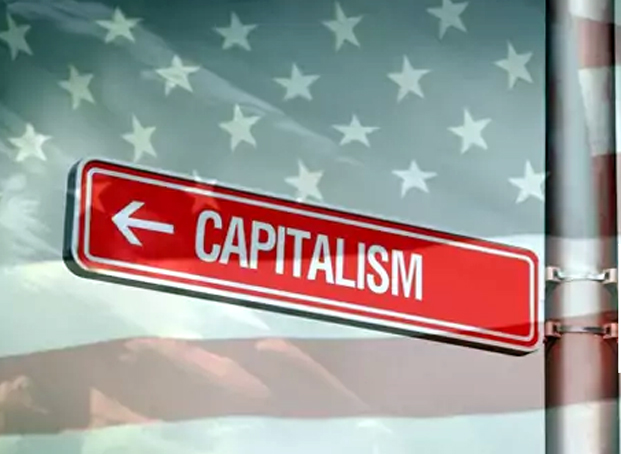By Nantoo Banerjee
It’s astonishing, yet true. The United States government, which prides itself as a leader in modern capitalism, is battling to prevent a private corporate takeover of a publicly traded American company by a significant Japanese entity. Both outgoing President Joe Biden of the Democratic Party and his anticipated Republican successor, Donald Trump, have declared their intentions to block Nippon Steel’s acquisition of the US Steel Corporation, citing that US Steel is a quintessential American enterprise!
Interestingly, Japan, once the world’s second-largest economy, is considered one of the US’s closest diplomatic and strategic allies. Last week, a prominent US government panel was unable to reach a consensus on the potential national security implications of the nearly $15 billion Nippon Steel deal for US Steel, leaving the final decision to President Biden, who is against the acquisition. Previously, President-elect Trump also expressed his intention to prevent Nippon Steel’s bid for US Steel, stating, “We will revive US Steel and make it great again.”
This situation is highly unusual in a free-market system. It’s not the first time a major US firm has been acquired by a foreign corporation. High-profile American companies like Chrysler, Firestone, Amaco, Monsanto, Allergan, and AirTouch Communications, all pillars of US corporate success and innovation, have also been purchased by foreign entities for substantial sums—often exceeding the amount offered by Nippon Steel for US Steel. Chrysler was acquired by Dutch conglomerate Stellantis NV; Firestone was taken over by Japan’s Bridgestone; Amaco was bought by the UK’s BP; AirTouch was acquired by British Vodafone; Monsanto was purchased by Germany’s Bayer AG; and Allergan was bought by Ireland’s Actavis, in a deal that was considered the most costly at $70.5 billion.
Historically, Capitol Hill has refrained from interfering with foreign acquisitions of US companies. It remains unclear how the federal government intends to obstruct the US Steel takeover. Is nationalization a possibility in extreme circumstances? The US government has a history of nationalizing companies to ensure critical services, with Amtrak being the latest example in 1971 when it was formed to relieve the legal burden on American railroads for intercity passenger transport.
Moreover, the US government operates several state-owned enterprises, such as the US Postal Service, Fannie Mae, Freddie Mac, NASA, and the US Nuclear Regulatory Commission. However, these entities are not mass manufacturing firms like US Steel, which was once the world’s largest steel producer and the first corporation to reach a billion-dollar valuation.
In its early years, US Steel was responsible for 67 percent of the nation’s steel output. Its logo was a powerful symbol of national strength and economic power. The company supplied steel for many iconic structures including the San Francisco-Oakland Bay Bridge, the US Steel Tower in Pittsburgh, and the UN Building in New York City. However, over the years, it gradually surrendered market share to more innovative domestic steel manufacturers like Bethlehem Steel.
Today, the United States is no longer a leader in the manufacturing of steel, coal, power, or cement. Other regions have surpassed it, with China now leading in all four sectors and accounting for 54 percent of global steel production. India ranks a distant second, followed by Japan and the US. Bethlehem Steel declared bankruptcy in 2001, and was subsequently acquired by the Laxmi Mittal group in 2003, which later also took over the International Steel Group in 2004 and absorbed Arcelor in 2006 for $26.9 billion.
Currently, ArcelorMittal, based in Luxembourg, stands as the second-largest steel producer globally, following China Baowu Group, which produced over 130 million tons of steel in 2023. Major players in the steel market today include Nippon Steel, Tata Steel, and JSW Steel. Sajjan Jindal-led JSW Steel is now the second-largest steel company in the US by market capitalization, trailing only Nucor, headquartered in Charlotte, which produces over 20 million tons of steel annually. Other significant US steel firms include Tenaris, Cleveland-Cliffs, Carpenter Technology, Commercial Metals Company, Steel Dynamics, and US Steel.
It is illogical for the US government, regardless of party affiliation, to block Nippon Steel Corporation’s attempt to acquire US Steel purely for sentimental reasons. On the contrary, the technologically advanced Nippon Steel could revitalize US Steel, enhancing its standing as a top American steel producer. In 2023, total raw steel production from US mills was just 89.7 million tons, with an average capacity utilization of about 75 percent.
During fiscal 2023-24, Nippon Steel’s production stood at approximately 40.5 million tons. Despite the imposition of high import tariffs to safeguard the domestic steel industry, the US continues to be a major steel importer, with 25.6 million metric tons imported in 2023, reflecting an 8.7 percent decrease from the previous year. Attempting to force Nippon Steel out of US Steel after the acquisition would set a precedent for government intervention in free-market corporate transactions based on “national interest.”
Interestingly, several capitalist nations, including France, Germany, Italy, and Spain, are adopting a model of capitalism that fuses free markets with government oversight, referred to as mixed economies. It appears the US may be moving in that direction as well. (IPA Service)


Leave a Reply